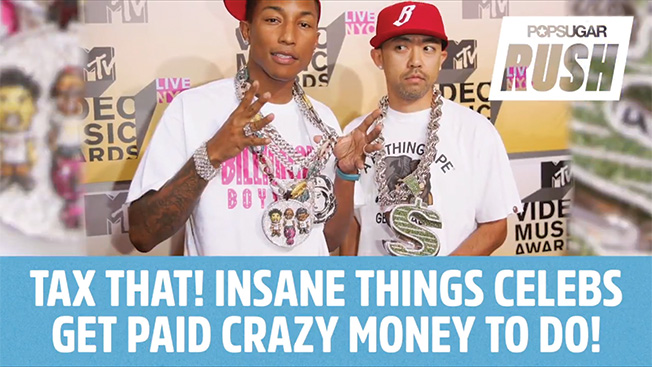On April 30, Popsugar will announce a daily show called Popsugar Rush at its Digital Content NewFronts presentation. But rather than have viewers catch the program on its women's lifestyle channel on YouTube, they'll be directed to Facebook where it will run exclusively for 24 hours.
"In every way, we are crafting the video specifically to be optimized for Facebook," said Popsugar Studios president David Grant.
Hosting such exclusive programming appears to be Facebook's latest move toward becoming a dominant player in streaming video. BuzzFeed and ABC's Jimmy Kimmel Live also recently struck a deal with Facebook, while a number of other publishers say they have projects in the works.

BuzzFeed put its video featuring President Obama promoting HealthCare.gov on the social network.
Popsugar's relationship with Facebook is paying off. Between September 2014 and February 2015—when Popsugar started creating optimized video featuring short, highly visual content—the publisher said its Facebook views jumped to 18.5 million from just 20,000. "Facebook has become a natural extension of our brand," said Anna Fieler, Popsugar's evp of marketing.
There is a strong push to provide exclusive content to Facebook, which the social network is "aggressively" asking for, say several publishers contacted by Adweek. One publisher who requested anonymity noted that while posting a YouTube link to his video on Facebook produced weak results, the same content posted directly to Facebook led to millions of views. Facebook, he said, had "no desire" to see YouTube's preroll ads on its platform as it affected the user experience.
Facebook denied that exclusive videos are part of its core strategy, adding that it works with partners to make content that will resonate with its users regardless if those items will appear elsewhere. YouTube declined to comment on this story.
"Most companies know that a best practice on Facebook is that an image of a video performs better than a direct link [to a third-party player]," noted Paul Kontonis, executive director of the Global Online Video Association. "But Facebook native video performs better than everything."
Facebook seems to be offering other incentives. Though the team at Jimmy Kimmel Live came up with the idea for a series on local bands that performed at this year's South by Southwest, co-executive producer Doug DeLuca said the main reason it created programming exclusively for Facebook was that it promised to help promote the content. The content was pushed through premium placements on Facebook-managed community pages and blogs. "Discovery tends to be easier on Facebook when you are doing something specific," he said. "I don't know if as many people would have found [the series] if we had posted it on our YouTube channel among celebrity-driven, high-profile pieces."
While Facebook has done a limited number of video ad deals, publishers have been told traditional ads are on the way. In the meantime, sources said the social network will announce the expansion of branded-content program Facebook Anthology at a meeting with publishers, brands and agencies in New York on April 22. Anthology connects advertisers with publishers to create Facebook-native content—Budweiser's 2013 Made in America partnership with Vice, for example. Other Anthology participants include Vox, The Onion and Funny or Die.
The finely tuned targeting capabilities around Facebook video are grabbing the attention of marketers. And no wonder. Facebook targeting by age, gender and location boasts up to 94 percent accuracy while its video player can derive deeper insights and metrics than other competitors, including YouTube, per Universal McCann.
Still, said Kevin Cronin, partner, search and social at UM, YouTube remains the leading platform for driving views overall. He cautions that if Facebook is asking publishers for exclusive content, marketers creating branded content might balk at having to limit that content to a single platform.
James Crolley, media director at Starcom MediaVest, noted that while Facebook has an autoplay feature, videos can easily be passed over in a feed. The challenge, he said, is "it does require creative to be far more impactful."








